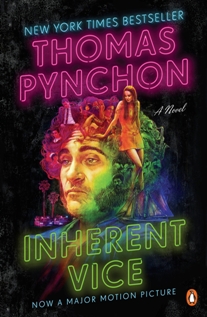
Tom Hanks in Bridge of Spies
Stephen Spielberg’s riveting new film (trailer) portrays the real-life events and personalities that led to a historic U.S.-Soviet-East German prisoner exchange in the frozen depths of the Cold War. In 1962, in a divided Berlin, an accused Soviet spy is to be traded for two Americans, if all goes well. An off-the-books U.S. negotiator has led the Soviets and the East Germans separately to the brink of agreeing the exchange, but hostilities are strong, motives are complex, and success is far from guaranteed.
Based on the 2010 Giles Whittell book of the same name, the story centers around the intertwined fates of William Fisher, born Rudolf Abel, a British-born KGB agent whom the FBI arrested in New York; Francis Gary Powers, U.S. pilot of a super-secret U-2 spy plane shot down while flying over Russia; and Frederic Pryor, an American graduate student who finds himself on the wrong side of the new Berlin Wall and in the hands of the Stasi, East Germany’s notorious secret police.
Spielberg tells these men’s stories, but centers on the role of U.S. insurance attorney James Donovan in the negotiations. Donovan’s role initially is to defend Abel in his trial on espionage charges. He takes on this thankless task, even though everyone in the country, including the judge in the case, believes Abel is guilty. However, American legal processes need to be followed, if only to show the world that every prisoner receives a fair trial (an ironic punctiliousness half a century later). Inevitably, Abel is convicted, but at least Donovan persuades the judge not to invoke the death penalty. It’s a controversial choice for Donovan to decide to appeal the verdict, and one that puts himself—and perhaps his family and career—in some danger.
When Powers’s plane is shot down, the possibility of a prisoner swap is immediately seized upon by the CIA. They want Powers back. He knows too much. Donovan is asked to negotiate an Abel-Powers trade, unofficially. What he encounters on all sides in wintry Berlin is stubborn resistance salted with suffocating paranoia. He also hears about the unlucky American student and insists he be part of the deal, which the CIA rejects. They’re not interested.
The acting is terrific, especially Tom Hanks as Donovan and Mark Rylance as Abel. In smaller roles, the CIA agents and Soviet and East German negotiators are suitably opaque and blustering. Amy Ryan, Donovan’s wife, is always excellent. They have the benefit of working from a strong script by Matt Charman, Ethan Coen, and Joel Coen. I particularly liked how, whenever Donovan asks Abel if he is worried about some particular outcome, Abel responds, “Would it help?”
The look of the film is exactly right—cold, forbidding—and the Glienicke Bridge, site of the hoped-for exchange is a desolate place. Spielberg’s handling of Donovan as “the standing man,” underscoring a metaphor introduced by Abel, works. If only he’d resisted a few message-heavy Hollywood touches (East Germans versus U.S. children scrambling over a wall, for example), it would have been perfect.
Rotten Tomatoes critics rating: 92%; audiences 91%.

 Director Isabel Coixet has put together an altogether pleasant comedy (
Director Isabel Coixet has put together an altogether pleasant comedy (
 Wait for cable. This Paul Weitz film
Wait for cable. This Paul Weitz film 



 She was Julia Child. She was Margaret Thatcher. She was Mamma Mia. And now Meryl Streep is Ricki Rendazzo, aging, nearly bankrupt rock singer living uneasily with a big consequential choice she made along the way—career over family (
She was Julia Child. She was Margaret Thatcher. She was Mamma Mia. And now Meryl Streep is Ricki Rendazzo, aging, nearly bankrupt rock singer living uneasily with a big consequential choice she made along the way—career over family (


 When this film (
When this film (